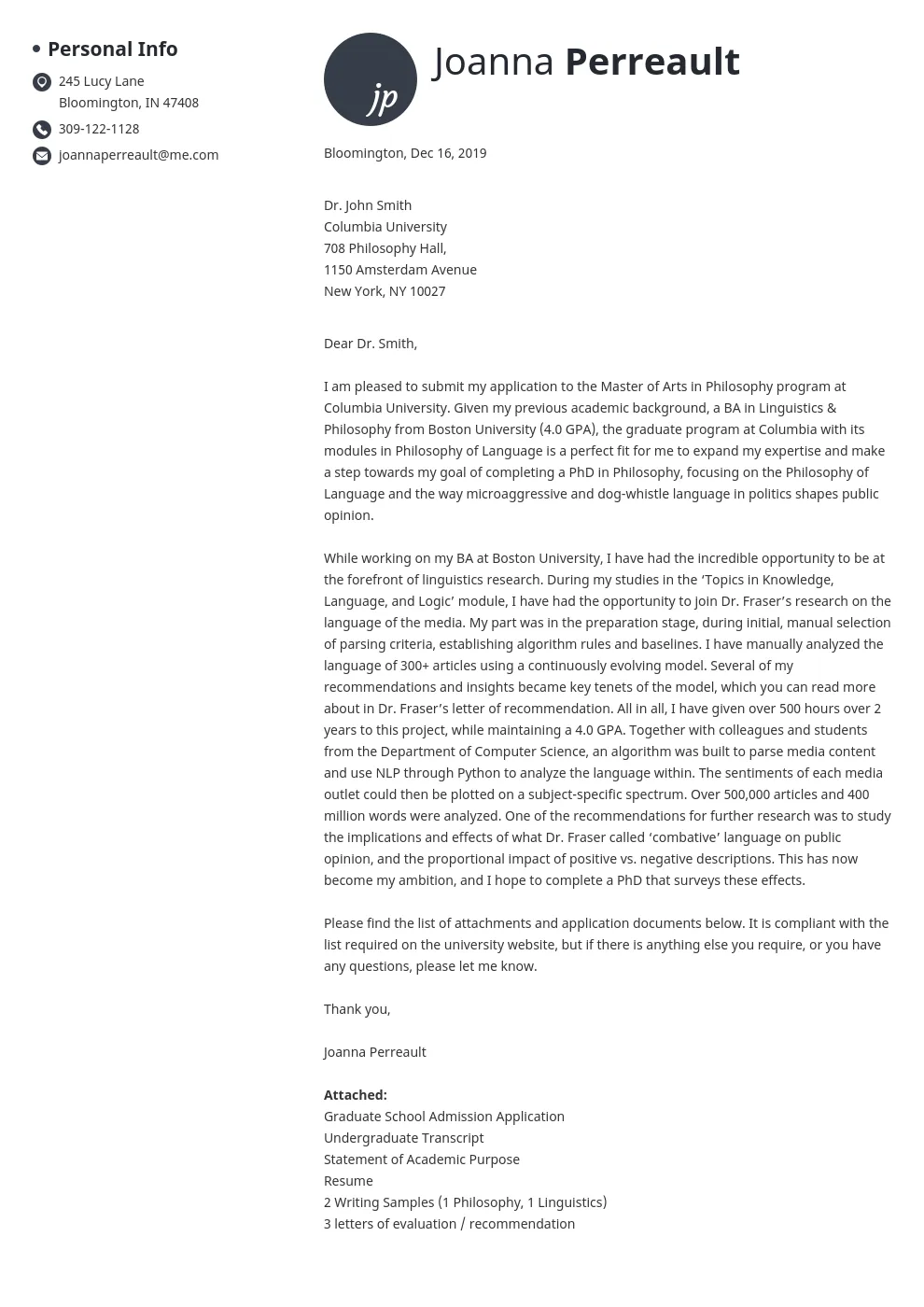Crafting a Compelling Grad School Cover Letter
Applying to graduate school is a significant step, and your cover letter is your first impression. It’s more than just a formality it’s your opportunity to showcase your personality, motivations, and suitability for the program. A well-crafted cover letter can significantly increase your chances of acceptance, setting you apart from other applicants. This guide will walk you through the essential elements of a successful grad school cover letter, offering practical tips and examples to help you create a letter that grabs the attention of admissions committees and secures your place in your desired program. The goal is to provide a comprehensive approach that covers all aspects of writing a compelling cover letter.
Understanding the Purpose of a Cover Letter
A cover letter serves as your introduction, providing context to your application. It allows you to highlight your key qualifications, explain your reasons for applying, and express your enthusiasm for the program. The purpose of the cover letter extends beyond simply reiterating your resume or CV; it’s your chance to tell your story, connect your experiences to the program, and demonstrate why you’re a good fit. It’s about showing the admissions committee that you’re not just qualified, but also genuinely interested and prepared to contribute. Cover letters should be tailored for each application to demonstrate the required skills and experiences.
Highlighting Your Academic Achievements
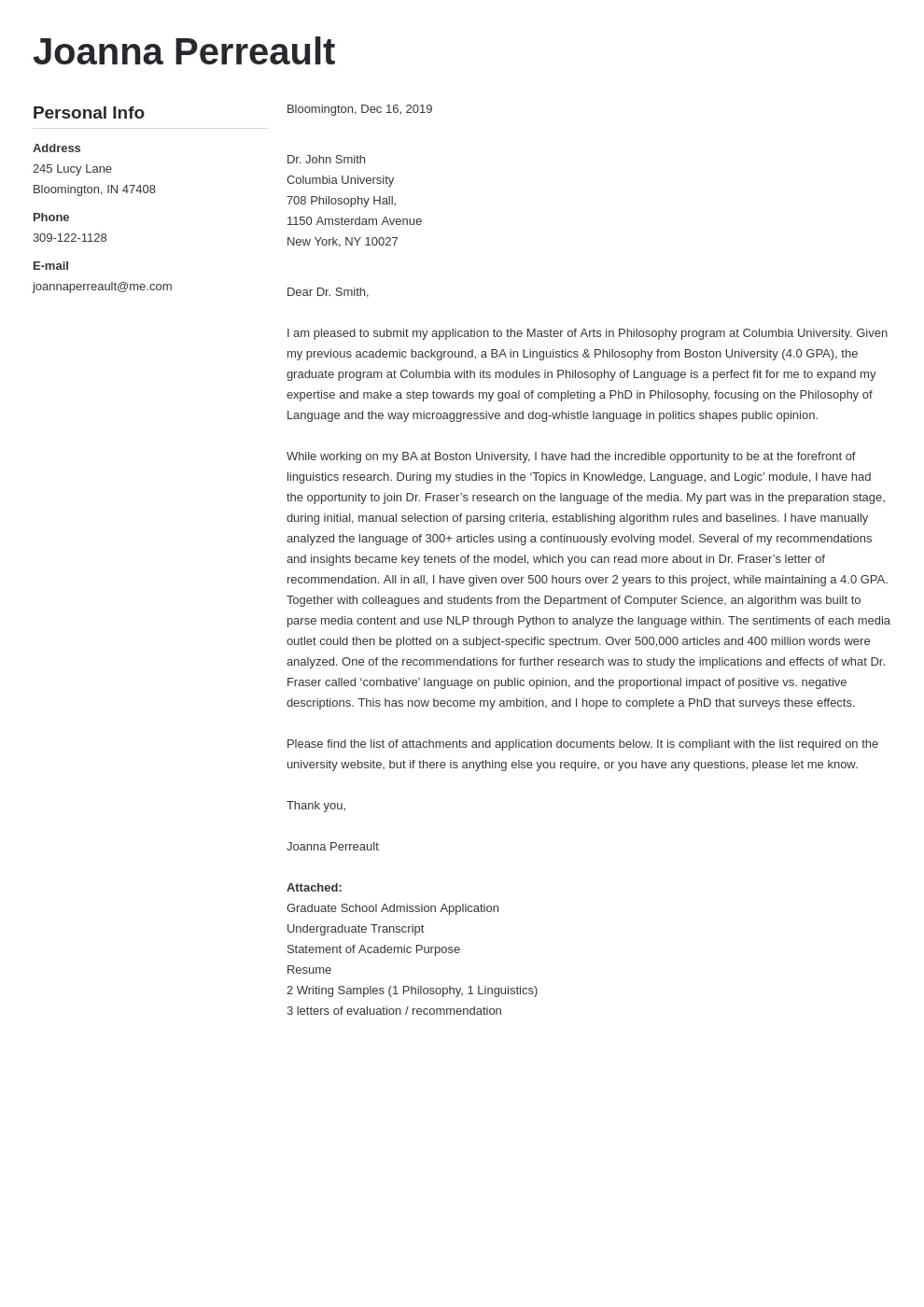
Your academic achievements are crucial. Include your GPA, any honors or awards, and relevant coursework. Focus on achievements that align with the program’s requirements and your future goals. This section should showcase your strong academic record, highlighting any instances of excellence or recognition. If your GPA is lower than ideal, explain any extenuating circumstances and emphasize the improvements you’ve made over time. Frame your academic history in a way that demonstrates your potential for success in graduate studies and your dedication to the field. Show your commitment to learning and your ability to excel in academic settings. If you have any research experience or have participated in any projects, make sure to include them.
Showcasing Relevant Skills and Experiences
Detail relevant skills (technical, analytical, communication) and experiences (research, internships, projects). Quantify your achievements whenever possible use numbers and data to illustrate the impact of your work. Tailor this section to match the requirements and focus of the program to show them that you can meet their needs. This demonstrates your practical readiness for graduate-level study. Highlight how these experiences have prepared you for the challenges of graduate school and how they align with the program’s focus. Emphasize skills that are transferrable. Use action verbs to describe your roles and responsibilities to demonstrate your impact and contribution.
Writing a Cover Letter That Gets Noticed
Researching the Program and University
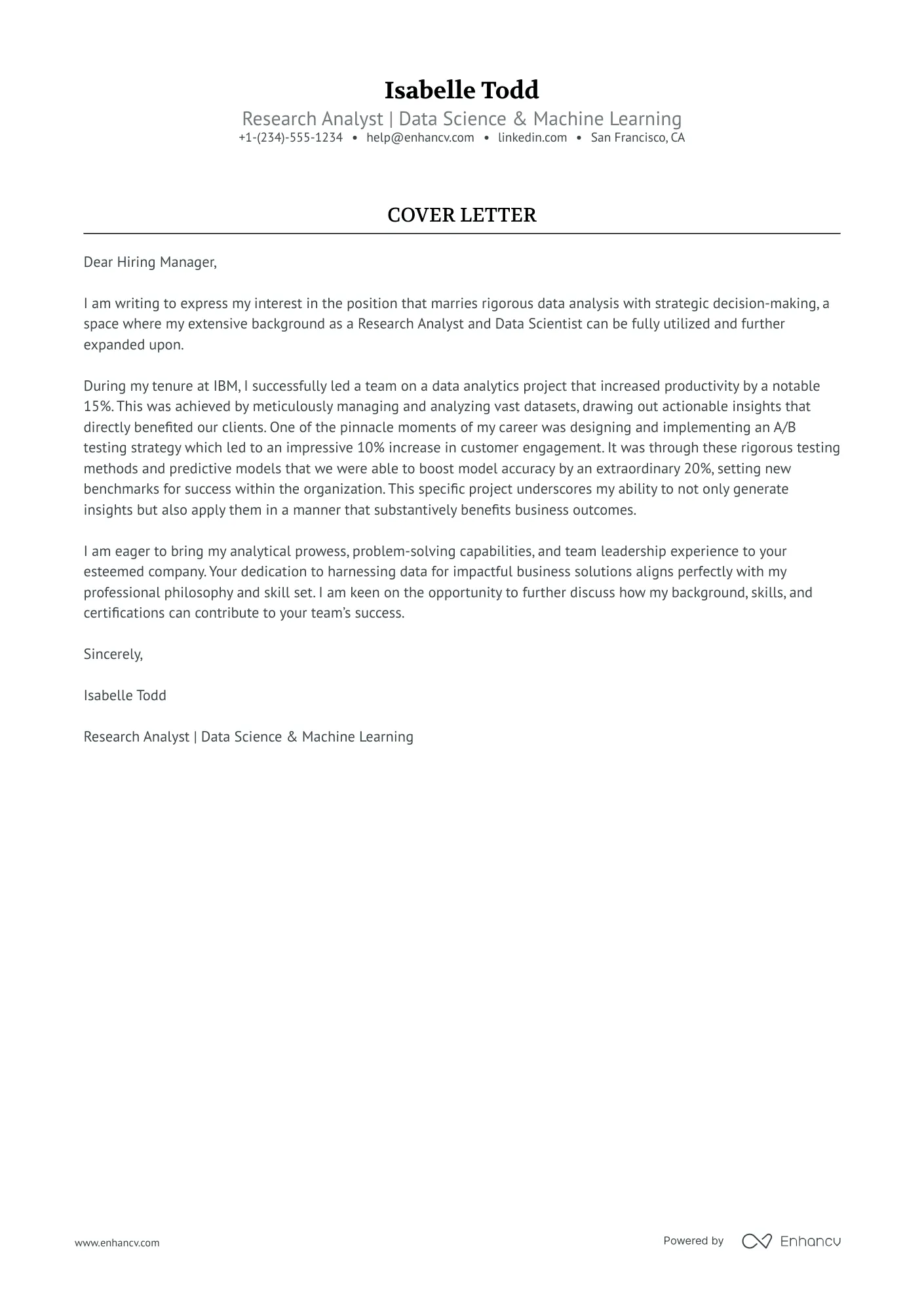
Thorough research is key. Understand the program’s curriculum, faculty, and research areas. Mention specific faculty whose work interests you and explain how your interests align with the program’s focus. Refer to the program’s website, publications, and any available resources to gather specific information. This research shows your genuine interest and commitment to the program. When referencing faculty, show you’ve done your homework by mentioning specific publications or research projects. This personalized touch demonstrates that you’ve taken the time to understand the program and its values. Showing your enthusiasm will help you stand out, and will encourage the reader to consider your application.
Tailoring Your Letter to the Specific Program
Each cover letter should be unique. Avoid using a generic letter; tailor it to the specific program. Highlight the aspects of your background that align with the program’s goals and requirements. Demonstrate how your skills and experiences make you a strong candidate for that specific program. This demonstrates that you are invested in the school and the program and did not simply send a generic cover letter. Customize each letter by mentioning specific courses, research opportunities, or faculty members that resonate with your interests. This personalization showcases your thoroughness and attention to detail, which are highly valued in graduate studies.
Demonstrating Your Passion and Enthusiasm
Express your genuine enthusiasm for the program and your field of study. Explain why you’re passionate about this specific program. Share your career goals and how the program will help you achieve them. Your passion should be evident throughout the letter, from your opening paragraph to your closing statement. Show them why you love your future field of study and what you have planned to do in the future. Share your long-term goals and show how the program aligns with your vision. Enthusiasm, when it is genuine, can be infectious. This will convince admissions committees that you are ready and eager to immerse yourself in their program.
Structuring Your Cover Letter Effectively
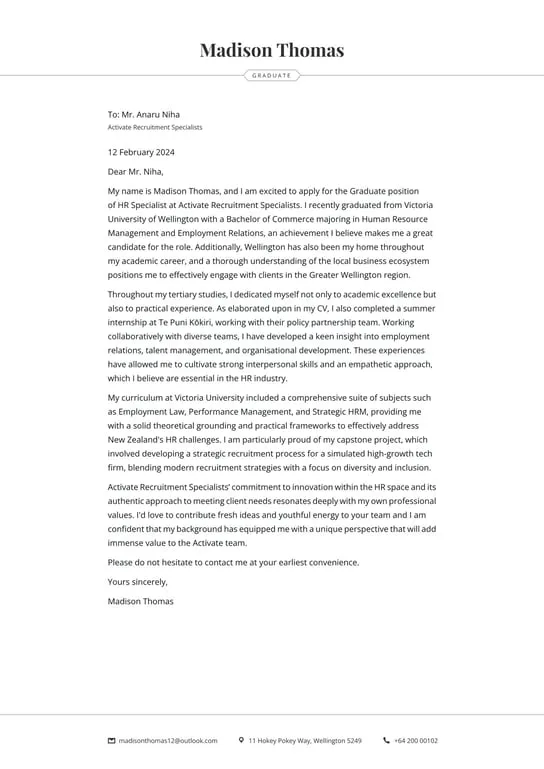
The Header and Contact Information
Begin with a professional header that includes your name, address, phone number, and email address. Then, include the date and the recipient’s name, title, and department. Make sure all of your contact information is up-to-date and easy to read. Ensure the information is accurate and formatted correctly to show attention to detail. If you are applying to multiple programs, make sure to update the recipient’s details in the header of your cover letter each time to show that you are dedicated to the program that you are applying for.
The Opening Paragraph Captivating the Reader
Start with a compelling opening that grabs the reader’s attention. Clearly state the program you’re applying to and why you’re interested. Consider starting with a brief anecdote, a striking statement about your career goals, or a reference to the program’s unique offerings. The opening should be memorable and quickly convey your enthusiasm and suitability. Avoid generic openings; make it specific to the program. The goal is to make the admissions committee want to read the rest of your letter by writing a memorable opening paragraph.
The Body Paragraphs Highlighting Your Strengths
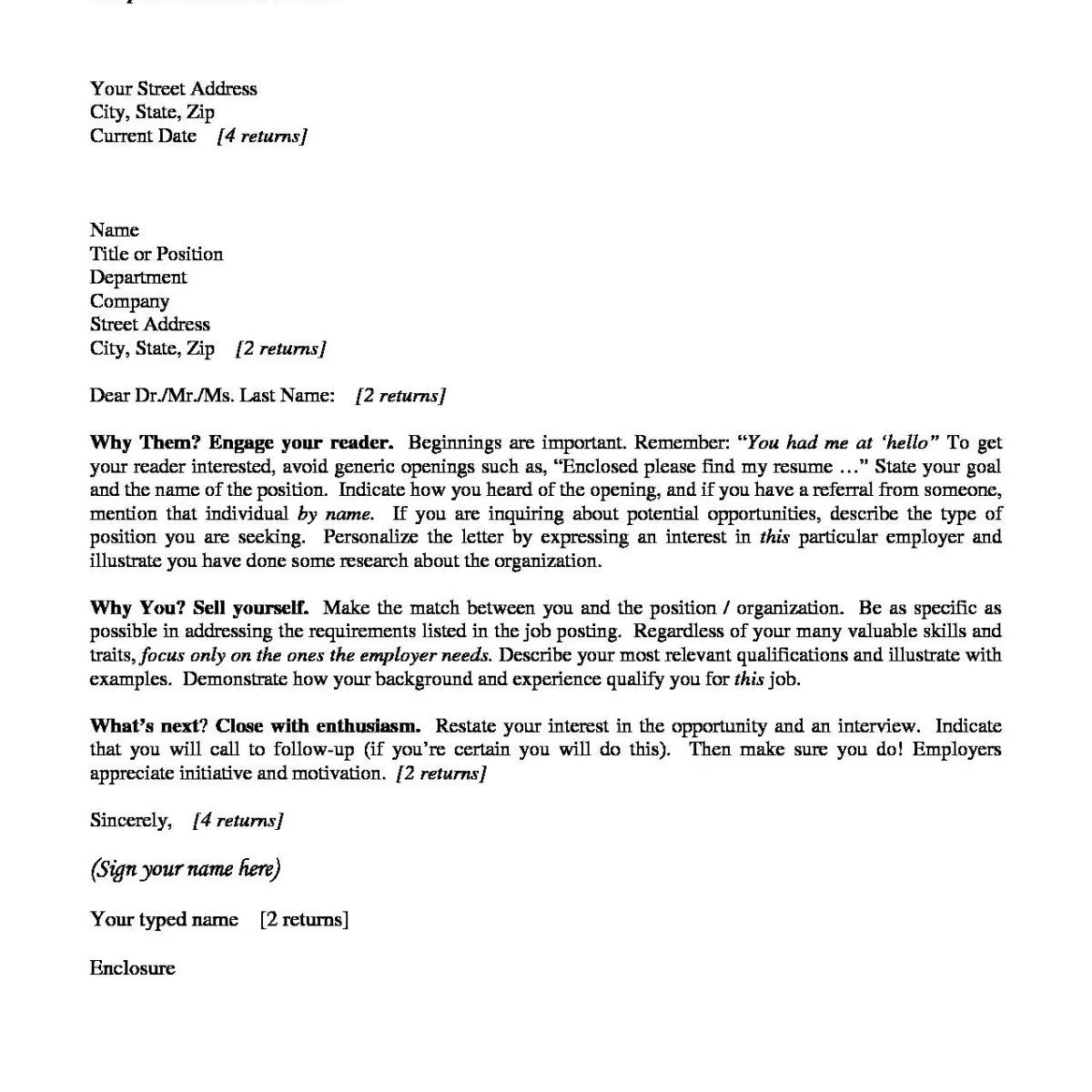
The body of your letter should highlight your key qualifications. Use this space to connect your experiences to the program’s requirements. Explain your motivation for applying and discuss any relevant skills or experiences. Structure your body paragraphs logically, focusing on specific examples that support your claims. This section should showcase your skills and experiences, and tie them to the program’s goals. Make it easy to read by using short, concise paragraphs that highlight one specific point at a time. Ensure each paragraph supports your thesis statement.
The Closing Paragraph and Call to Action
Conclude by restating your interest in the program and summarizing your qualifications. Express your gratitude for the reader’s time and consideration. Include a call to action, such as inviting them to review your application materials or expressing your availability for an interview. End with a professional closing, such as “Sincerely” or “Best regards.” Ensure your closing paragraph leaves a positive and lasting impression on the reader.
Grad School Cover Letter Examples
Example 1 STEM Program
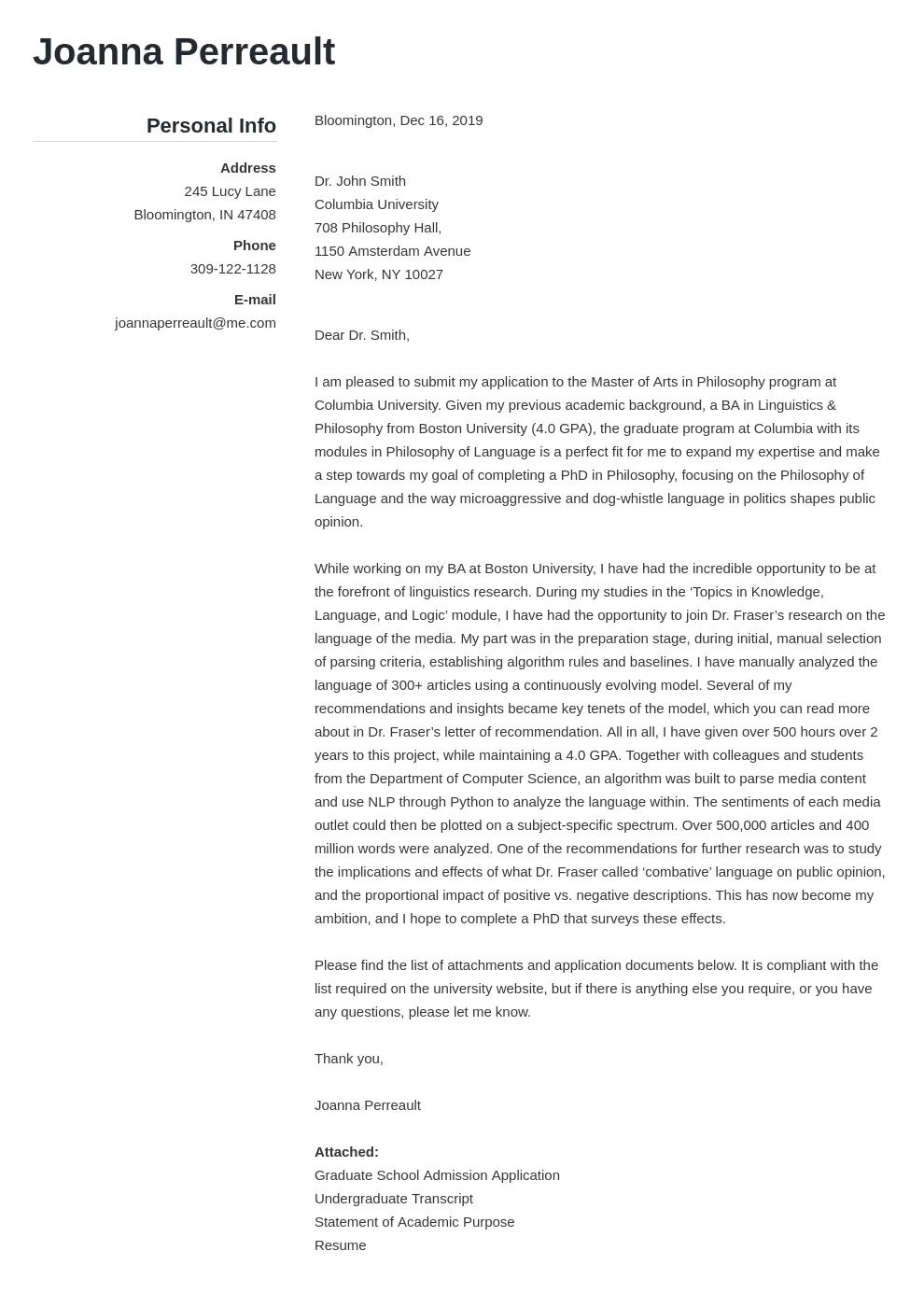
Here are a few cover letter examples to show how to tailor your cover letter to your program. For a STEM program, focus on your research experience, technical skills, and any publications or presentations. Highlight projects, data analysis, and problem-solving abilities. Be specific about your lab experience and the techniques you’ve mastered. Use examples from previous work and show how they relate to the program’s research. These details show your readiness to contribute and succeed in a research-intensive environment, which is vital for admission to a STEM program. Show the value that you can bring to the program.
Example 2 Humanities Program
For a Humanities program, emphasize your writing skills, critical thinking abilities, and research interests. Discuss your reading and analytical skills, and the specific theories or scholars that interest you. Mention any experience with writing, editing, or presenting research. Tailor your letter to the specific department and faculty, showing how your interests align with their focus. A well-written humanities cover letter should reflect your ability to engage critically with texts and ideas, making it clear you’re ready for advanced study. Show them your passion for the field, your previous research experience, and explain why your skills translate into the program. Emphasize your intellectual curiosity and your capacity for independent thought.
Example 3 Business School
In a business school application, highlight your leadership experience, analytical skills, and any relevant professional experience. Use data to show your achievements. Mention any work experience, internships, or projects where you demonstrated your abilities. Explain your interest in the specific program, linking it to your career goals and future aspirations. Your goal is to convince them that you can work well in a team, lead effectively, and use your quantitative skills to solve practical problems. Frame your skills and experiences to demonstrate your readiness to contribute to the program and succeed in business.
Common Mistakes to Avoid
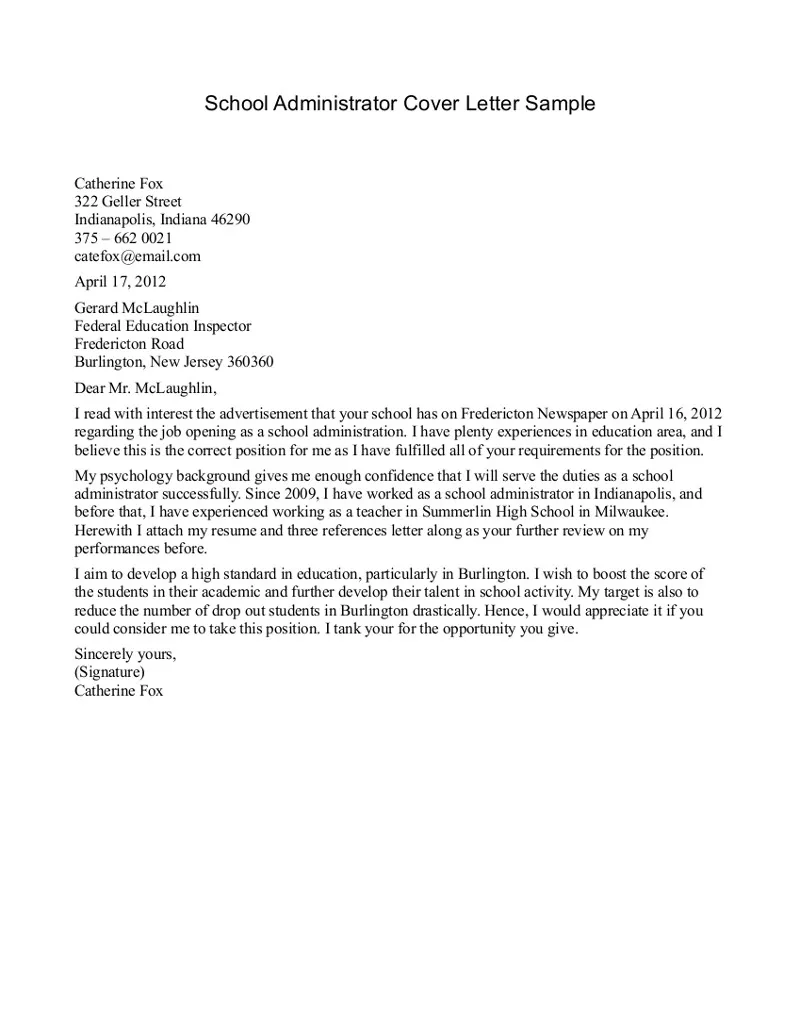
Generic and Vague Language
Avoid generic statements and vague descriptions. Use specific examples and concrete details. Generic phrases make your letter unmemorable and less effective. Instead of saying you are a hard worker, provide examples of projects where you worked diligently to achieve a specific goal. Show don’t tell. To make a strong impression, ensure your cover letter is free of vague language and instead full of impactful examples. Stronger word choice demonstrates strong writing abilities, which is often required for graduate programs. Generic letters can make it seem like you sent the same thing to multiple schools.
Focusing Too Much on Yourself
While you need to highlight your qualifications, avoid making the cover letter entirely about yourself. Focus on how you can contribute to the program. Discuss your skills and experiences in terms of their relevance to the program’s goals and how you can bring value. Emphasize the program’s benefits and how your skills match their requirements. Show how your skills will enable you to excel and how you can contribute to the program and the wider academic community. Show them how your skills will translate and add value to the program.
Ignoring the Program’s Requirements
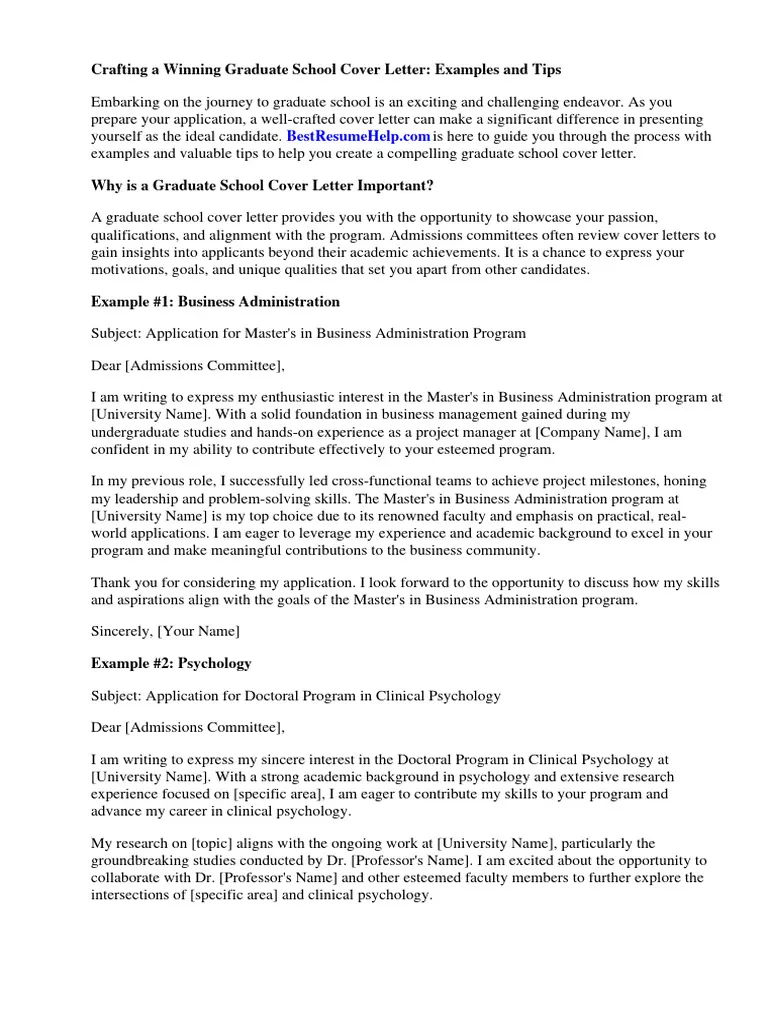
Carefully read the program’s application requirements and address all the specific questions or prompts. Many programs will provide a list of requirements that you must address in your letter. Make sure your cover letter meets their needs by providing all the necessary information. Failing to address specific questions can make you look careless or uninterested. Following the instructions is essential for making a good impression. Take your time to read the instructions completely and show that you are paying attention to detail by following their instructions.
Proofreading and Editing Your Cover Letter
Proofread carefully for any grammatical errors, typos, or inconsistencies. It’s essential to present a polished, professional image. Have a friend, professor, or career counselor review your letter. Multiple pairs of eyes can catch mistakes that you might miss. Proofreading shows your attention to detail, which is valued in graduate studies. Ensure that your cover letter is free from errors to make a good impression on your reader. Always revise and edit your letter before submitting your application.
Writing a compelling cover letter is a critical step in the grad school application process. By following these guidelines and tailoring your letter to each program, you can significantly improve your chances of acceptance. Remember to highlight your strengths, demonstrate your passion, and proofread carefully. Good luck!
